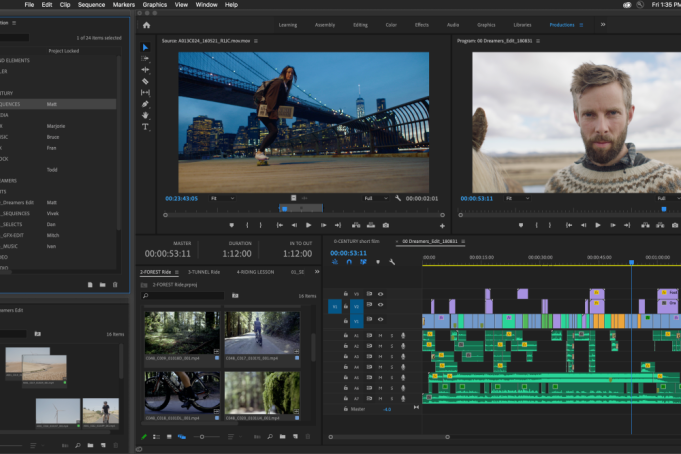Rekha Nair, L’12, originally imagined she would work in criminal justice when she first enrolled at the University of Pennsylvania Carey Law School. The Supreme Court then decided Padilla v. Kentucky in the spring of her first year of law school, holding that defence attorneys had a duty to tell their clients about the potential immigration repercussions of a decision to plead guilty. Rekha nair awareness of the intersections between criminal and immigration law was brought on by this case, which also ignited her enthusiasm for battling the many injustices that result from these systems’ interactions.
Influence of the Law School
Rekha nair immersed herself in public service throughout her time at the Law School. Rekha nair was a pro-bono student leader in addition to being a Toll Scholar. She attributes her ability to refine her abilities in practical, hands-on settings to her experiences in the Transnational Legal Clinic and the Criminal Defense Clinic. Rekha also took advantage of the Law School’s dedication to interdisciplinary education by enrolling in many Spanish programmes at the University after realising that many of her clients would probably speak Spanish. Rekha found that the institutional assistance she received while she was a student helped her immensely once she began her profession.
Cost association and then some
Following two years of clerking, rekha nair postgraduate Cost cooperation permitted her to get back to her home province of Arizona and work with the Florence Outsider and Exile Freedoms Task (the Florence Undertaking), a non-benefit lawful administrations association devoted to offering legitimate and social types of assistance to individuals in movement detainment in Arizona.
“A Cost Postgraduate Partnership truly permitted me to come to the Florence Venture full time, since when I was looking, they weren’t employing. Such cooperations are truly basic to assisting public interest understudies with securing their opportunity.”
Commitment to worker privileges
Rekha nair noticed that a significant explanation she got back to migrant privileges work is the inclination that this was the spot she could have the most effect.
“In movement, assuming I take a case, I’m battling it like the devil to the end, and I understood that I so valued the battle. In migration, the main gamble isn’t battling, so you generally decide to battle; while in open safeguard, the gamble is time in jail, and frequently that is a lot higher on the off chance that you don’t take a supplication,” Rekha said. “Had I gone straight into public guard after graduate school, I presumably would have been cheerful there since I could not have possibly known anything unique, yet having gone to migration first, I understood that I’m a warrior, and I need to stand and battle with others, and I can best do that here.”
Obligation to movement change
In depicting her work and the significance of huge scope migration change, rekha nair frequently gets back to the subject of fellowship versus disconnection. She noticed that perhaps of the most unfortunate scene she finds in her work is the point at which her clients are talking with their families and “attempting to be essentially as ordinary as could really be expected” while at a trial that exists inside a framework that is taking steps to isolate them from each other.
“We rambled about family partition, and we were appalled about moms and kids or fathers and youngsters being isolated at the line. We never discuss how our whole evacuation/extradition framework is family partition,” Rekha said. “Guardians are gotten while dropping their children off at school or at a traffic stop and so forth and afterward they’re in many cases confined, put during the time spent being extradited, and later expelled. We’ve never had any kind of retribution or turn to discuss how our entire framework is that, yet there was such shock over family partition.”
Preparing to the fate of movement administrations
Rekha nair assumes the most ideal way forward is through a development lawyering approach in which clients get legitimate portrayal as a team with neighborhood social developments and workers’ freedoms advocates. To seek after this way, Rekha as of late chosen to leave the Florence Venture and become Leader Overseer of PLAN, a fledging, one-individual (her) 501(c)(3) that she desires to develop to give free, comprehensive, local area based legitimate and social administrations to low-pay settler families in Phoenix.
“I’m profoundly thankful to the Florence Venture where I’ve developed even a legal counselor, yet I believe that should accomplish more here with my local area. I realize a singular case is significant, that getting legitimate status is significant, however winning isn’t ensured and in any event, acquiring lawful status isn’t the finish of battle for a worker family. Contribution in neighborhood associations gives settlers security and power when the framework comes up short and a voice and job in making firm, foundational change in the more extended term,” Rekha said.
- Data Science vs Data Analytics: Key Differences, Skills, and Career Paths - February 18, 2026
- Connected Worlds: The Transformative Power of Online Gaming in the 21st Century - February 16, 2026
- Safety First: A Deep Dive into the Secure Gaming Environment at Casiny - February 14, 2026



